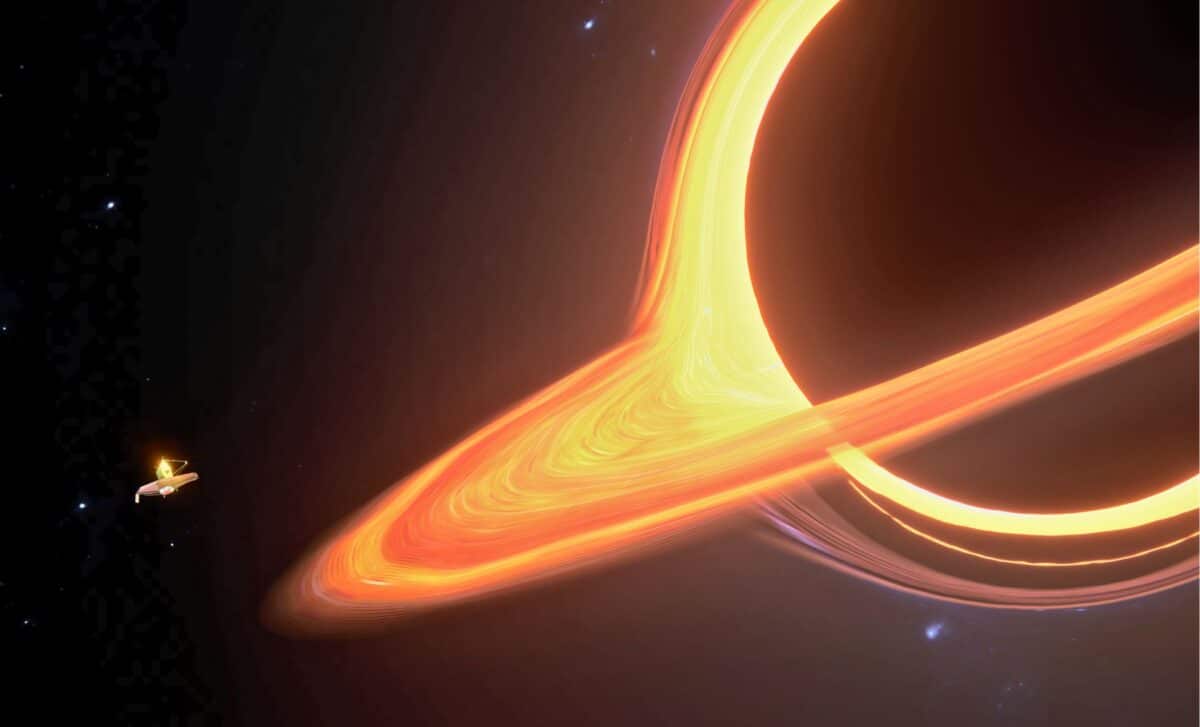
Arezki Amiri Published on December 27, 2024
Space, with its vast, mysterious, and often terrifying nature, has long captivated humanity’s imagination. As we continue to explore the cosmos, our understanding of the universe expands, revealing astonishing, sometimes unsettling phenomena. Among the most intimidating of these are black holes, cosmic objects that warp the fabric of space and time itself. Despite their ominous presence, black holes remain a subject of intense study, and with each new discovery, our perception of them evolves.
In 2019, NASA offered an unexpected revelation when it released the first-ever image of a black hole, which turned out to look like a pixelated, glowing doughnut. This breakthrough was a milestone in our ability to “see” into the dark heart of these cosmic giants.
But as if that weren’t enough, in 2022, NASA took things a step further by sharing something even more extraordinary — the sound of a black hole. Recorded from a black hole in the Perseus galaxy cluster, located over 250 million light-years from Earth, this eerie audio sounds like something straight out of a science fiction movie.
But how is it even possible for a sound to exist in space, which is often considered a vacuum? That’s what makes this discovery so fascinating. As we dive into this eerie soundscape, we’ll explore how this was captured and what it tells us about the strange, often unsettling nature of black holes.
The Mystery of Sound in Space
When most people think of space, they envision a vacuum — a vast, empty void where sound is silenced. This idea has been reinforced by countless sci-fi films and popular media. But the notion that sound doesn’t exist in space is an oversimplification. Sound, in its traditional form, does indeed require a medium to travel through — whether air, water, or solid material. Space, as a vacuum, offers no such medium.
However, the region around black holes is far from empty. Here, gas and dust swirl in chaotic motion, and their vibrations can create ripples in space-time. These ripples can, in turn, be translated into sound, challenging the conventional understanding of “no sound in space.”
The Catch: Sound Still Exists Around Black Holes
- Space is a vacuum, but it’s not entirely devoid of matter.
- Gas clouds surrounding black holes can carry vibrations.
- These vibrations can be converted into audible sound via sonification.
How NASA captured the sound of a black hole
In 2022, NASA’s Chandra X-ray Observatory captured an extraordinary phenomenon — the sound emanating from a black hole in the Perseus galaxy cluster. Located 250 million light-years away, this supermassive black hole sits at the center of a vast web of hot gas and particles.
How It Works: Sonification
- NASA detected ripples caused by gas motions around the black hole.
- These ripples, while inaudible at their natural frequencies, were scaled upward by 57-58 octaves.
- The result is a frequency that humans can perceive, transforming the cosmic ripples into sound.
A Terrifying Cosmic Melody
The translated sound is unsettling, almost as if you’re hearing “the cries of trapped extraterrestrial souls.” The deep, groaning noise that emanates from the black hole is not a mere curiosity — it’s a stark reminder of the violence and chaos lurking in the depths of space.
The Sound: A Window into Cosmic Horror
| Sound Characteristics | Description |
|---|---|
| Pitch | Deep, ominous groaning |
| Frequency | Scaled up by 57-58 octaves |
| Impression | “Thousands of trapped extraterrestrial souls yearning to be free” |
By capturing this audio, NASA not only pushes the boundaries of science but also presents a visceral, emotional connection to the unknown. The black hole’s groan is a sound not just heard, but felt, as it invokes awe and unease in equal measure.

Leave a Reply